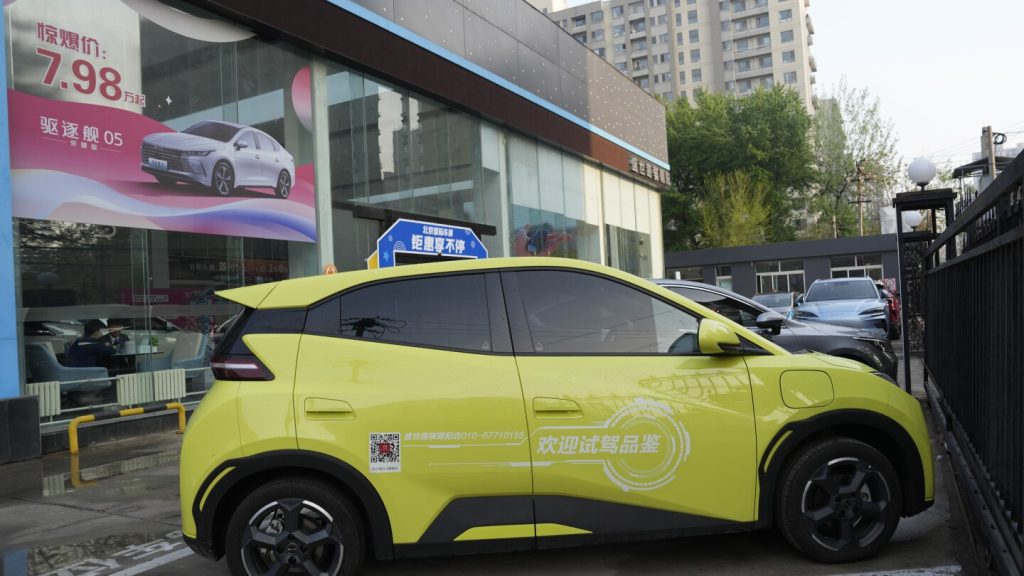The emergence of low-priced electric vehicles (EVs) from China, specifically the Seagull from BYD, is causing concern among American automakers and politicians. The Seagull, priced at around $12,000 in China, is comparable in quality to U.S.-made EVs that cost three times as much. However, tariffs on imported Chinese vehicles and potential additional tariffs may prevent the Seagull from entering the U.S. market. Despite this, industry experts predict that Chinese EVs could disrupt the global auto industry in a significant way.
U.S. politicians and manufacturers view Chinese EVs as a serious threat, with the Biden administration considering imposing 100% tariffs on imported electric vehicles from China. The Alliance for American Manufacturing has warned that government-subsidized Chinese EVs could have detrimental effects on the U.S. auto sector. Industry analysts, including Tesla CEO Elon Musk, have also acknowledged the competitive advantage of Chinese EVs in terms of quality and cost.
Chinese brands are focusing on offering affordable EV options to appeal to mass markets, while Western markets have traditionally targeted higher-income niche markets with more expensive EVs. BYD’s efficient manufacturing processes, expertise in battery technology, and vertical integration of production contribute to the Seagull’s low cost. The Seagull’s minimalist design and efficiency have impressed industry experts, prompting U.S. automakers to consider radical changes in their approach to designing and engineering low-cost EVs.
U.S. automakers are facing a challenge in adapting to the cost-efficient production methods employed by Chinese manufacturers like BYD. The Seagull’s design prioritizes efficiency and cost-effectiveness over traditional engineering practices, leading to weight savings and improved range per charge. To compete with Chinese EVs, Detroit automakers need to rethink their design and engineering processes while maintaining safety and quality standards.
Despite its low cost, the Seagull maintains a quality feel and performance, demonstrating that affordable EVs can still deliver a satisfying driving experience. While BYD currently sells the Seagull in select markets outside of China at higher prices to reflect transportation costs and profit margins, the potential for Chinese EVs to expand globally and enter the U.S. market is being closely monitored by American automakers and policymakers.
In response to the rise of Chinese EVs, U.S. automakers are exploring ways to develop their own cost-effective EV models to remain competitive in the evolving market. Ford CEO Jim Farley emphasized the need for innovation and adaptation to counter the threat posed by Chinese EV manufacturers. As the global auto industry undergoes a transformation towards electric vehicles, the competition between Chinese and American automakers is intensifying, signaling a new era of innovation and market dynamics.


